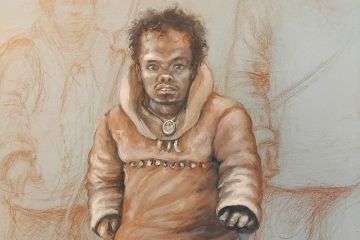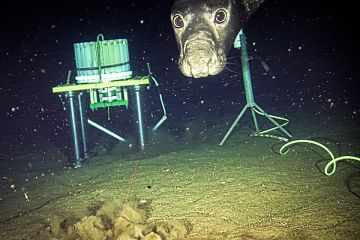Four Stories About Food Sovereignty explores global concerns
- Stephanie Harrington
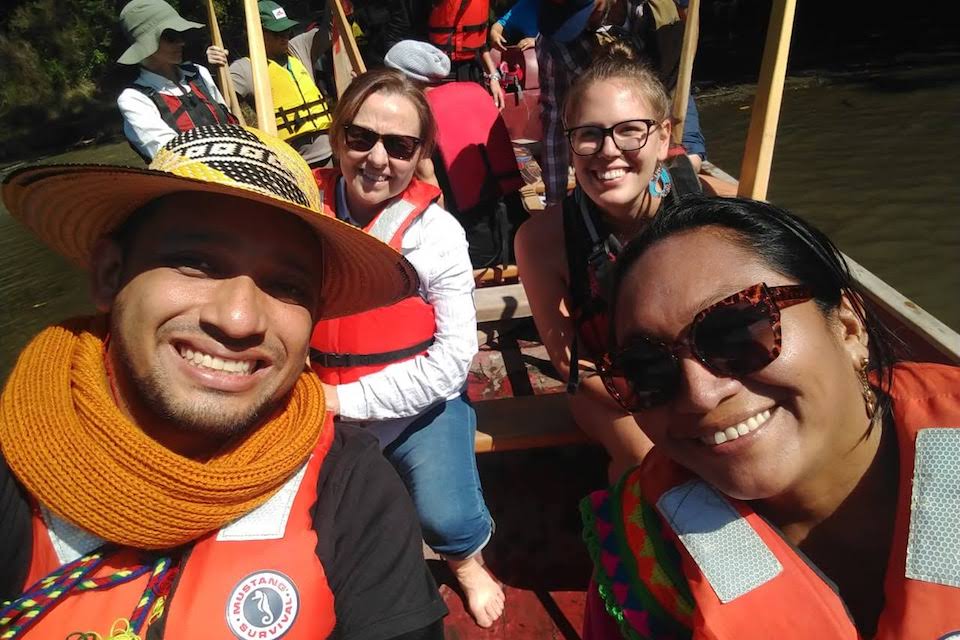
"Every land has its own seed.”
Jordanian activist Fatima Obeidat opened a recent workshop on Vancouver Island with these provocative words.
Obeidat, founder of Kananah Organization, which shares sustainable food practices with poor urban and Syrian refugee women in Jordan, joined participants from communities in Colombia, Jordan, South Africa and T’Sou-ke First Nation to launch the four-year, SSHRC-funded Four Stories About Food Sovereignty (FSAFS) project.
The phrase became a refrain for the international group of food producers, sustainable food system advocates, and academics from Indigenous, refugee and farming communities who gathered on the island this September to shape FSAFS. The new UVic-led project examines the historical roots of food crises, while trying to understand how vulnerable communities can gain decision-making power over the food they eat and how they access it.
“Throughout the week we recalled many times Fatima’s evocative words on the first day,” recalls project director and UVic historian Elizabeth Vibert. “Fatima was speaking both metaphorically and to indicate the importance of preserving biodiversity and growing Indigenous plants and those already adapted to challenging local conditions.”
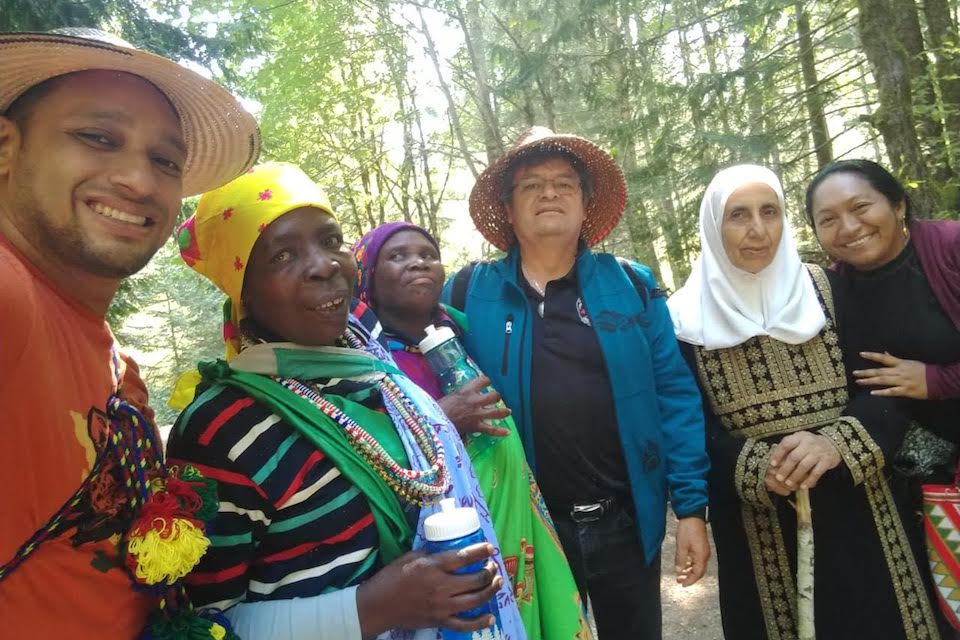
Local control of food during the climate crisis
The interdisciplinary team of UVic and international scholars will explore how vulnerable communities can build local and regional governance of food systems in the context of climate crisis.Scholars and activists refer to this approach as food sovereignty rather than food security. Vibert says the latter can focus on top-down solutions that favour the interests of multinational corporations.
Keeping with the project’s community-engaged spirit, researchers asked participants to help generate the key research questions, which will include documenting their respective experiences of climate change and what each community is trying to do to mitigate its effects.
Despite the vast geographical distances between the participating countries, Vibert says deepening drought and water scarcity, climate crisis, special challenges facing women, and extractive industrial development were shared concerns.
“Participants all talked about how they were surprised to learn that their biggest local challenges are also, often, the problems of communities on the other side of the globe,” she says. “They talked about how to build solidarities and support each other.”
Food as politics
Hosted at the T’Sou-ke Nation on southern Vancouver Island, the week’s highlights included a canoe journey and hike with Chief Gordon Planes and plant specialist Christine George to learn about Indigenous food systems.
A separate full-house public event on Sept. 5 at UVic gave Victoria residents the chance to hear about the huge challenges facing marginalized communities in their efforts to create or maintain healthy food systems.
Food advocate Jakeline Romero, a member of the Wayuu Indigenous nation in northern Colombia, told the audience that her people are facing an emergency. Climate change and industries such as coal have exacerbated land loss and shortages of clean water. In the last decade, 5,000 Wayuu children have died of malnutrition.
“All of us have to consider how we have to change our ways of being in the world. Food is politics,” Romero says. “We want to continue to be able to nourish our children and grandchildren with the food our ancestors ate and it is becoming very difficult to do so.”
Documentary to highlight four stories
The Four Stories About Food Sovereignty team will produce a documentary film as part of their research, a similar approach Vibert took with the award-winning 2017 documentary The Thinking Garden, which followed the story of a women's farming collective in South Africa.
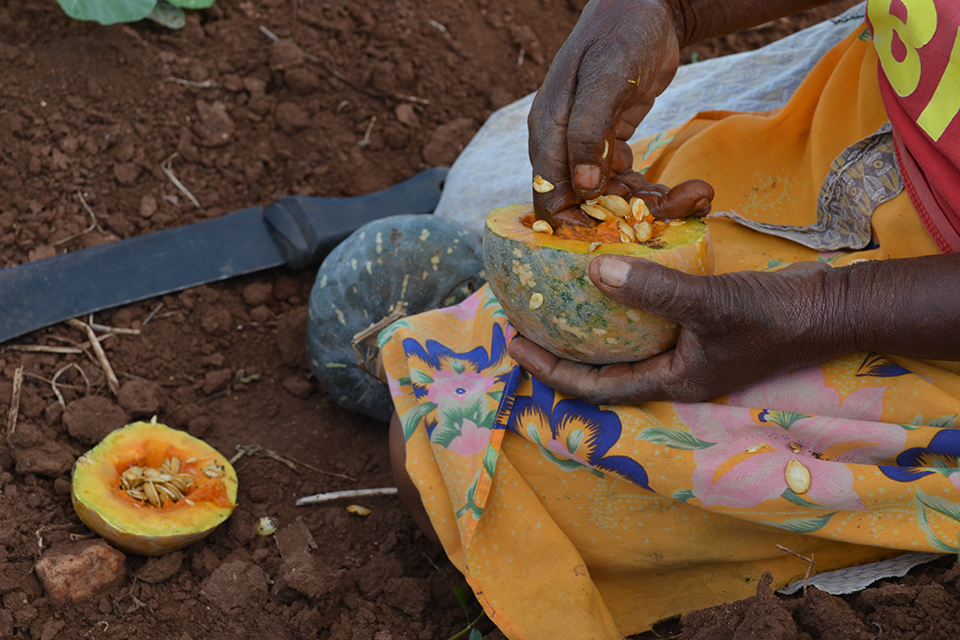
Vibert will co-direct the new film with UVic writing chair Maureen Bradley—with filming set to begin overseas next summer. UVic professors Astrid Perez Pinan (public administration) and Matt Murphy (business) round out the interdisciplinary UVic-based team.
Vibert has travelled to South Africa and Jordan with Dr. Bruno Jayme, who received his PhD at UVic, to train young people to produce their own films. Some of their footage may be included in the documentary. Vibert says the training provides valuable job skills while giving young people from marginalized communities the chance to tell their stories.
Obeidat, who called on people to care for the earth on which we depend for survival, is sure to be heard. “We must be guardians of the land instead of destroyers.”
Find out more
Photos
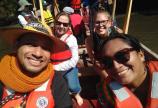
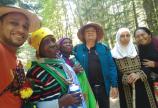
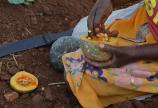
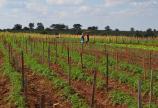
In this story
Keywords: international, sustainability, climate, research
Publication: The Ring

